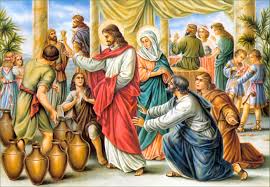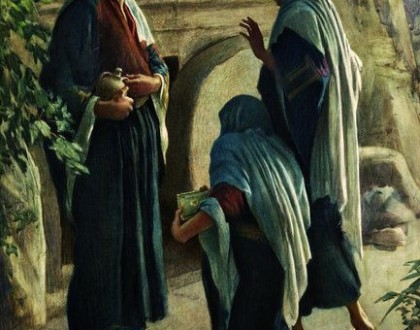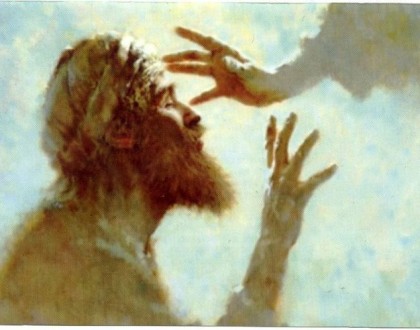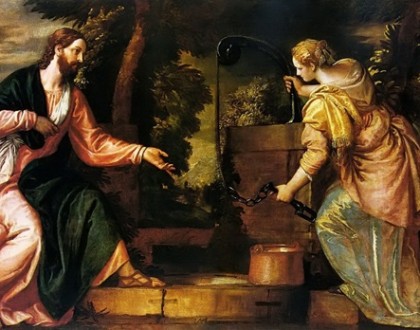28th Sunday of OT The Wedding Feast Matthew 22:1-14

28th Sunday of OT The Wedding Feast Matthew 22:1-14
This is an extraordinary section of Matthew’s gospel. It’s Matthew’s parable of the wedding feast and the declined invitations and is the last of 3 successive parables of judgment against Israel, especially her leadership. Each has an “authority figure”(father, landowner, and king respectively). “Sons” or a “son” appear in all three. This passage is immediately preceding the account of Jesus’s passion and death. So something is really intensifying here in Matthew, there is an emotional power to these passages.
The Lord is now in Jerusalem, he is addressing the chief priests and elders of the people. He is addressing the religious establishment. He continues to contrast the Kingdom of God which he is announcing, from the religion that they represent. There is always a danger within any religious system, that the focus becomes so exclusively on the details, traditions and practices of the religion, that the heart of it is forgotten. Jesus is always coming back to this point.
Everything we do in a given religion, including our own, is meant to open us up to divine friendship. That is what it is finally about. If you are so focused in a fussy way, or even in an aggressive way, on the details without getting the heart, then what is the point? This is what these stories and contrasts are about.
In this context he proposes this parable.
“The Kingdom of heaven may be likened to a King who gave a wedding feast for his son”.
The NT often uses the image of the wedding feast, to talk about this friendship, between God and the Human race. (Think most famously of the wedding feast of Cana). This image is so powerful because He is himself in person, the wedding of heaven and earth. He himself is the coming together of heaven and earth, divinity and humanity.
Here is the Good News for us, we his followers, are invited to join in the joy of this union. We are invited to the wedding. We are invited to be guests at the wedding. So we can participate in the joy of this union. So notice, the King is God the father, is giving a banquet for his Son, that’s God the Son, whose bride is the Church. So we are not just guests at the wedding, we are the Bride. We are meant to marry the Son, who is being proposed to us as the Bridegroom. The joyful intimacy of the Father and Son is now offered to us to be shared.
The first reading from Isaiah (25:6-10) is a beautiful parallel with the gospel.
“On this mountain the Lord of hosts will prepare for all peoples a banquet of rich food, a banquet of fine wines, of food rich and juicy, of fine strained wines.”
This is Yahweh spreading out his banquet. Yahweh wants to feed his people, but who would have guessed how extravagantly this promise would be fulfilled.
Incredibly God is giving God away for free… but even more incredibly nobody seems interested, most thinking it’s too good to be true really. In today’s world something that’s been given away for free contains a hitch or a scam for you to pay or lose money in another way. We are suspicious of “free” things.
What if the greatest gift ever … is absolutely free?
God ultimately gives his very self. That’s the wedding feast now of the son, a banquet of incredibly rich food, and unbelievably choice wine. Why?… because it’s the Son himself, who is being offered to us.
As the parable goes on we see that there is an edge to all of this. Why? This is because it’s the King who is doing the inviting to the wedding banquet of his son. In other words, this is a state occasion of great moment. If the Queen of England invites you to the wedding of her grandson that is not just an ordinary invitation, like being invited to a friend’s wedding from school. You can’t just say, no, I can’t make it. That’s no ordinary invitation that is a very serious state occasion invitation.
The wedding banquet was a way of affirming the Kings power and the legitimacy of his succession. When a King said, come to the wedding of my son, that’s his way of saying, you better come show your loyalty to me because this is my successor. By coming to the wedding you were saying, yes, I’m on the King’s side. By not coming you are committing an act of insurrection. This helps to explain, the King’s very severe reaction, when people don’t come. So people get the invitation and it says in the gospel that some ignored the invitation and went away, one to his farm, another to his business, the rest laid hold of his servants, mistreated them and killed them.
You get this invitation to a state occasion, and you are either so complacent about it, or you are so preoccupied; I’ve got better things to be doing, or even, at the limit, you are so offended by this that you kill the servants. What is going on here? This is where this parable really cuts to the heart. We all have been invited to the best wedding you could imagine. Even more, you are not just invited, you are being proposed as the Bride, to this incomparable Groom. God the Father has sent his son, in order to share his divine life with us. That is the proposal of Christianity.
I’m sorry but there is just no religion or philosophy on the planet that has ever proposed such an extraordinary opportunity to the human race. “God became human that humans might become God”. That’s the way the Church fathers put it. God became human that we might become sharers in the divine life. That’s the wedding banquet. To miss that, is to miss everything. To miss that is to be insulting to the King, to miss that is to perform an act of insurrection.
This is why the King responds in such an extreme way. We hear that he sends his troops and he attacks these people and burns down their city.
What is being communicated to us is a very simple point; this matters enormously. In fact nothing matters more. I do not have time to pray, for church, for helping others…. I am a busy person, I have a lot on my mind….come on, nothing matters more than how you respond, and whether you respond to this invitation.
“Our lives are over like a sigh” as the psalm 90 says. “70 years, 80 for those who are strong”, all the things that preoccupy us in the course of our lives, they are important, sure, but they are nothing compared to this invitation.
All that finally matters is how and whether you respond to this invitation. That is why the intensity of the King’s reaction is so important, it’s meant to wake us up.
We all have heard the invitation of God, to enter into intimacy with Him, to make him the center of our lives. To be married to him in Christ. And we find the most pathetic excuses not to respond.
There are so many good things about the secular world and we all enjoy and appreciate them but“Secularism” is a tragedy. I like the secular world; I don’t like secularism that is an ideology that says I can be satisfied by the goods of this world, end of story. Pleasure, money, power, success, honour, all the usual suspects, nothing in the world wrong with them in themselves. But they are not meant to satisfy the human heart.
We are invited to participate in these things, to take advantage of them, to benefit from them, and nothing wrong with it, but how tragic if we respond to all those invitations, but we don’t respond to the one invitation that matters. Finally we hear that the servants went out into the street and gathered all they could find; the bad and good alike. The hall was filled with guests. This is evangelization, isn’t it? This is that ministry of outreach that bears the divine invitation, to everybody, good and bad.
You all know this message, you have heard this invitation, and it’s the best thing on offer. Stop making excuses, stop saying you got something better to do. You don’t have something better to do. Respond, now, today, to this great message of Salvation.
Recent Sermons

Easter Sunday – The Resurrection
April 14, 2017

4th Sunday of Lent Year A – The Man Born Blind
March 27, 2017

3rd Sunday of Lent Year A – The Samaritan Woman at the Well
March 20, 2017




